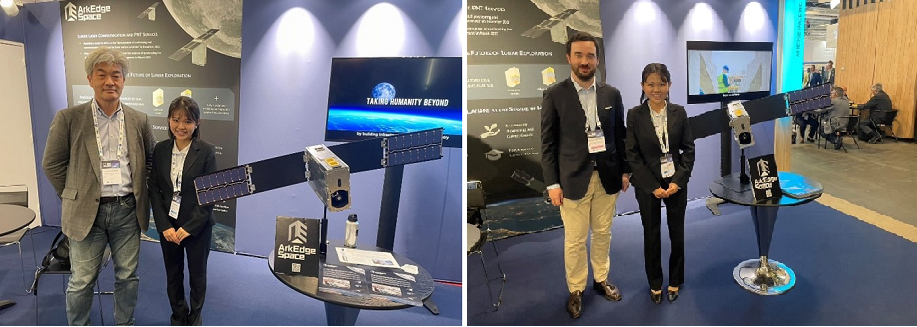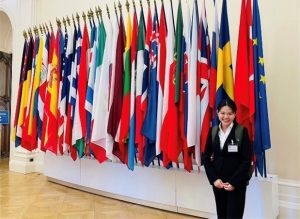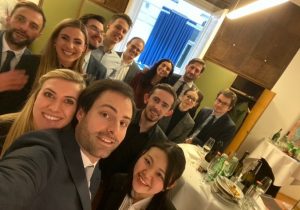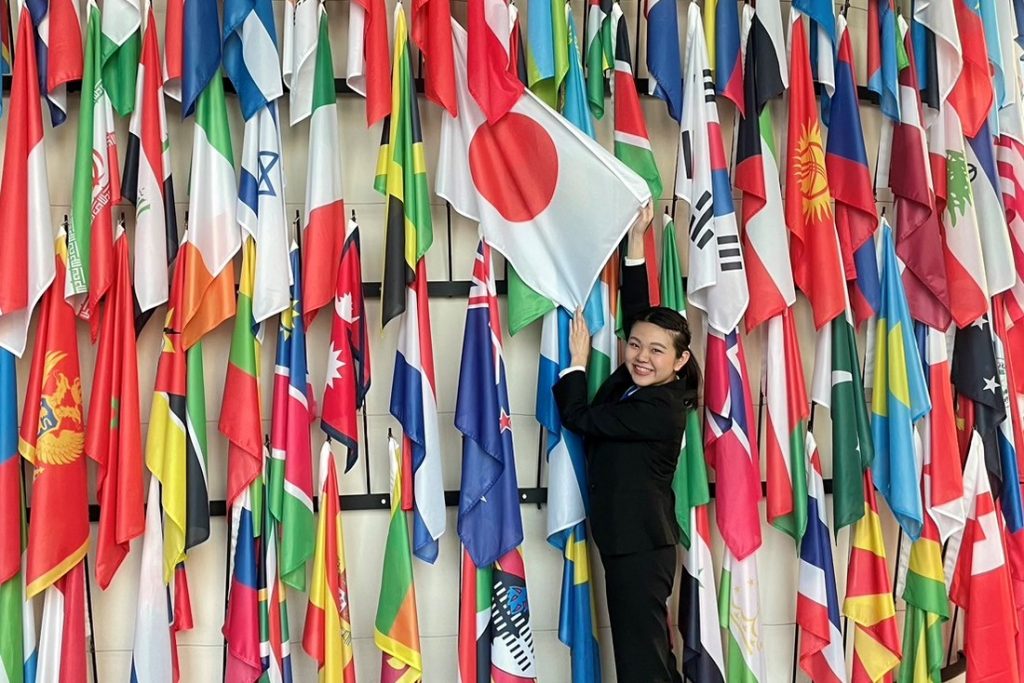I enrolled in the Graduate School of Public Policy(GraSPP) at the University of Tokyo to study Space Policy in April 2022. I participated in the exchange program at SciencesPo in Paris, France from August to December 2022, and I worked as a visiting researcher at the European Space Policy Institute(ESPI) in Vienna, Austria under the MoU between GraSPP and ESPI from January to March 2023.
Campus Life at SciencesPo, my first and only choice
SciencesPo, one of the renowned Grandes Écoles established in 1872 in the aftermath of the Franco-Prussian War, is ranked third in politics in the 2023 QS World University Rankings. Many leaders in public, private, and academic sectors graduated from there, including former Presidents Jacques Chirac and François Hollande, as well as current President Emmanuel Macron. The campus is very international, with about half of the students coming from outside of France, representing over 150 nations.
My motivation for studying at SciencesPo was to acquire practical political analysis skills and to build a global network, in order to pursue my future goal of contributing to global issues through international cooperation and the application of science and technology, particularly space development technology. My research focuses on Space Safety, Security, and Sustainability in international politics and economics. While I primarily research space development with a focus on ‘peaceful use’ due to the uniqueness of Japan’s space policy, I majored in International Security discussing military space strategy at the Paris school to understand space exploration and utilization from multiple perspectives. Indeed, the small-group debating style courses allowed me to gain a better understanding of both the ‘civilian’ and ‘military’ aspects of the space industry. My favorite class was American Military Power in the World Today, given by retired U.S. Army Colonel Peter Herrly. In-depth discussions were held during the lessons about not only the roles and evolutions of the U.S. Forces but also the problems with U.S. military bases in Okinawa, where I was born and raised. That made me realize the importance of my identity as an Okinawan working on a global scale. The times I spent in my dormitory talking until midnight with my closest friends who are musicians and researchers active in Europe, are also unforgettable.
Space x Policy
Since I was a child, I’ve been fascinated by outer space. Space Policy is my dream field. During my stay in Paris, I attended several international conferences in addition to classes at the university. At the International Astronautical Congress(IAC) in September 2022, I worked at the exhibition of ArkEdge Space, an advanced nano-satellites developer, and became aware of the current state of the Japanese space industry in the world. I was so glad that my supervisors visited me there. At the Paris Peace Forum in November 2022, I learned about the crucial space policy agenda from a governance viewpoint through high-level political discussions, including President Macron’s speech.

At the IAC Paris with Prof. Suzuki and Asst. Prof. Verspieren
Additionally, I gave a presentation about our research project on behalf of the University of Tokyo team, the first Japanese participant, at the Organisation for Economic Co-operation and Development(OECD) Space Forum. Although space is often described as infinite, space as a resource is limited, and the recent rapid growth of space activities has harmed the space environment by increasing space debris. The ‘Economics of Space Sustainability’ project investigates the value of space-based infrastructure, the socio-economic impacts of space debris collisions, and the policy implications of taxation, insurance, active debris removal, etc. Having my economic background, the multidisciplinary research on space and economics is exactly what I was looking for and is a precious opportunity.

At the OECD Space Forum
A huge step to becoming a Space Policy researcher
The European Space Policy Institute(ESPI) is a think tank that provides space policy insights and space industry trends to decision-makers. ESPI contributes to the development of European space strategy through its independent analyses and recommendations. My objective for working at ESPI was to comprehend the dynamism of the European space industry, which brings together various countries’ policy intentions, as well as to acquire practical abilities as a space policy researcher. The three months I spent as the only Asian in the Vienna office with my highly qualified and experienced colleagues were extremely valuable to me. At the same time, the days were very challenging because of various differences, such as research approaches in academics and business. In a different culture and work environment, I struggled to find ways to clearly communicate my intentions and abilities, express my passions, and engage in debates.
Also, I worked hard to improve my research and writing skills so that I could quickly access high-quality information and analyze it insightfully, all in English. Above all, I tried to keep an eye open for any potential opportunities. One of the results was that my opinions on Japan’s H3 rocket were quoted in an international space news article. In March 2023, as a member of ESPI, I attended the United Nations Committee on the Peaceful Uses of Outer Space(COPUOS), where I observed the difficulties of international rulemaking as a result of the deep connections between space development and international politics. The rewarding experience at ESPI clarified my professional goal of contributing to space development as a bridge between Asia and Europe.

With my colleagues at ESPI
The knowledge and experience gained through studying abroad are indescribable. I strongly encourage all GraSPPers to actively apply and take on the challenge, going beyond your comfort zone! Finally, I would like to express my heartfelt gratitude to everyone who supported me during my incredible time in Paris and Vienna. I cannot thank my supervisors, Prof. Kazuto Suzuki and Asst. Prof. Quentin Verspieren, Ms. Megumi Aoshima, and the rest of the GraSPP team for assisting me with the study abroad process, my teachers at SciencesPo, and the amazing ESPI team enough. I will make use of the most enriching eight months of my life for my future study and career.



